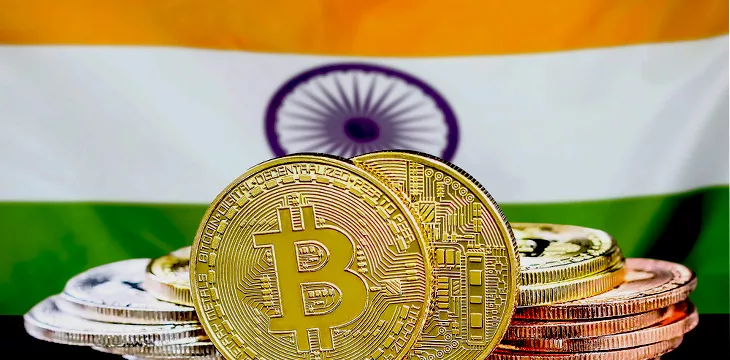|
Getting your Trinity Audio player ready...
|
India’s Finance Minister, Nirmala Sitharaman, has made it clear that ‘cryptocurrencies’ cannot be a legal currency in India; they are simply assets for trading and speculation.
India’s “position has always been that assets created in the name of crypto can be assets for trading, assets for speculation, assets for money making, and assets for many other things. We haven’t regulated them then, and we haven’t regulated them even now. But they cannot be currencies, and that’s the Government of India’s position also,” Sitharaman said while speaking at the India Today Conclave 2024.
Decrypting India's Crypto Dilemma With Nirmala Sitharaman
Watch the full session here: https://t.co/T5mFq7EZd3 | @nsitharaman @szarabi @rahulkanwal @anjanaomkashyap #IndiaTodayConclave24 #Cryptomarket #cryptocurrency pic.twitter.com/7YmyPRshDj
— Business Today (@business_today) March 15, 2024
“Currencies are to be issued with a fiat of the government or the central bank of the day,” she noted. “If there is a resurgence [in crypto prices], that is an asset being created for speculation, for trading, or for whatever purpose.”
Digital currency gains in India—or profits made after selling assets at higher than their purchase price—were more or less consistent throughout 2023, except in August and September, according to a new report from blockchain analytics firm Chainalysis. The South Asian nation touched $1.05 billion in estimated digital currency gains, putting itself among the top six countries, the report said.
India, the world’s biggest democracy, has treated digital asset trading with suspicion for a long time. While the Reserve Bank of India (RBI) insisted on a complete ban, the government imposed one of the harshest taxation on digital asset trading—a 30% flat tax
on all digital currency income with no provision to offset losses and a 1% tax deducted at source (TDS) on all transactions above INR 10,000 ($120).
“And [crypto] is still unregulated in India,” Sitharaman said. “That is why we thought it fit to raise it in the G20 forum because as it is so technology-driven, it will have a bearing on cross-border payments and so on.”
“If one country regulates it and others don’t, it will be an easy way of moving money, round-tripping, funding drugs or even terrorism. So, we wanted to create a framework by taking it to the level of G20. It has been very well received, and I am sure there will be some framework emerging,” Sitharaman said.
India held its Group of 20 (G20) Presidency for one year starting December 2022, with digital asset regulation as one of its agendas. The G20 is an intergovernmental forum of the world’s major developed and developing economies, collectively accounting for 85% of global gross domestic product (GDP) and 75% of international trade.
Digital asset exchanges’ still in distress
The digital asset trading exchanges in India have been requesting the government to lower the 1% TDS to 0.01% to revive trading volumes on Indian exchanges, which have collapsed as most traders migrated to foreign exchanges to evade punishing local taxes.
The exchanges also requested the government to reduce the 30% flat tax and allow losses to be offset with profits. However, all such requests have fallen on deaf ears as the government chose to remain silent.
“Volumes on crypto exchanges is the reflection of crypto activity in a country. Indian volume is less than 1% of global volume [despite India being] 17% of [the] world population. We need aligned tax policies to be competitive!” Sathvik Vishwanath, chief executive of digital asset exchange Unocoin, said on X.
“Beyond [temporary] price volatility, the true power of crypto lies in its potential to disrupt countless industries, including finance. Its power of technology helps us to fix broken industries. Govt is shortsighted!” Vishwanath added.
India has, however, embraced blockchain, the underlying technology of digital assets. Several Indian provincial governments use blockchain’s immutability to store land records and educational certificates. India is also using blockchain technology for its own central bank digital currency (CBDC), which is currently being tested for both wholesale and retail use.
Watch: Blockchain ticks all the boxes for India’s thriving e-commerce market

 03-02-2026
03-02-2026 




